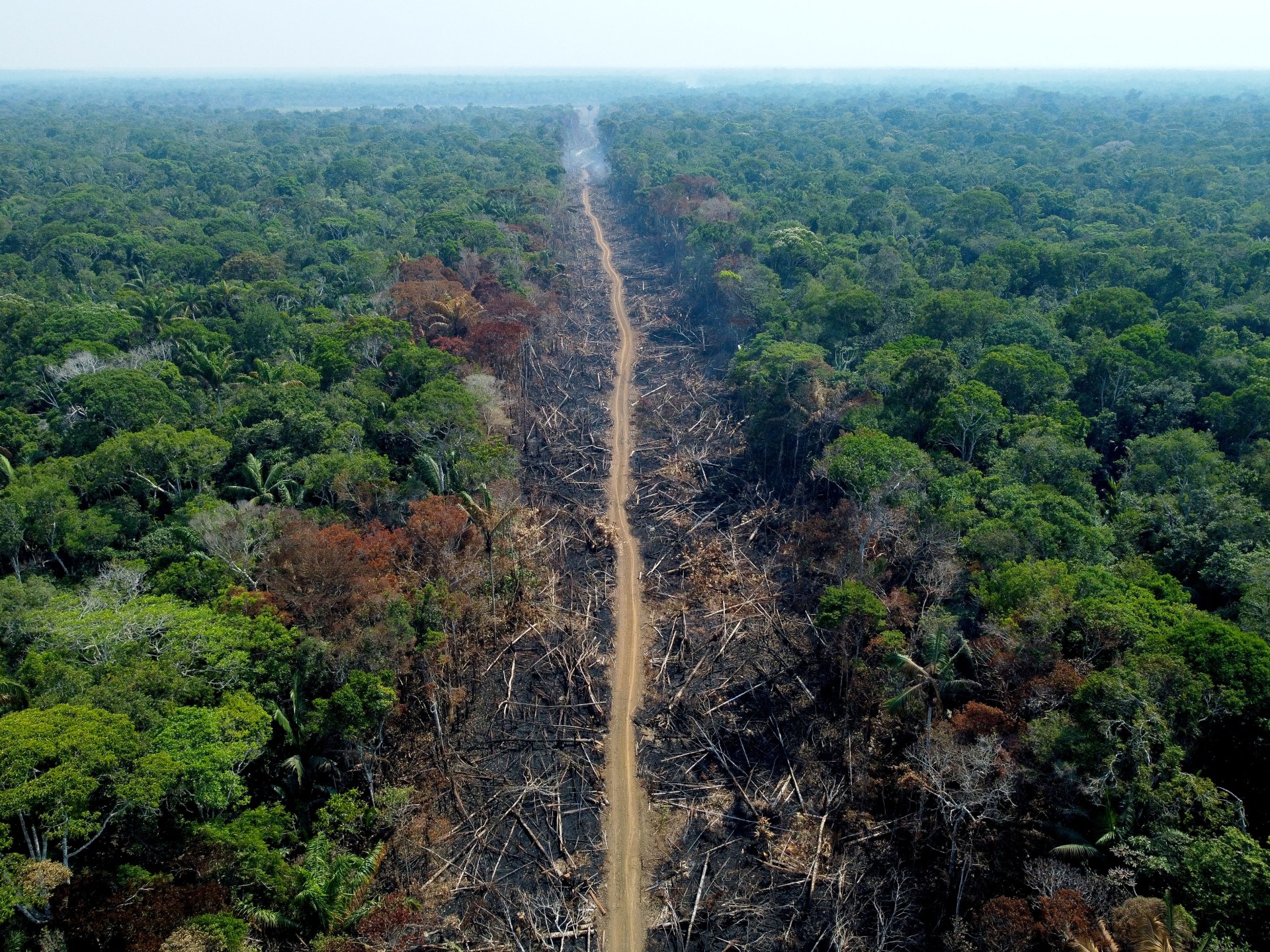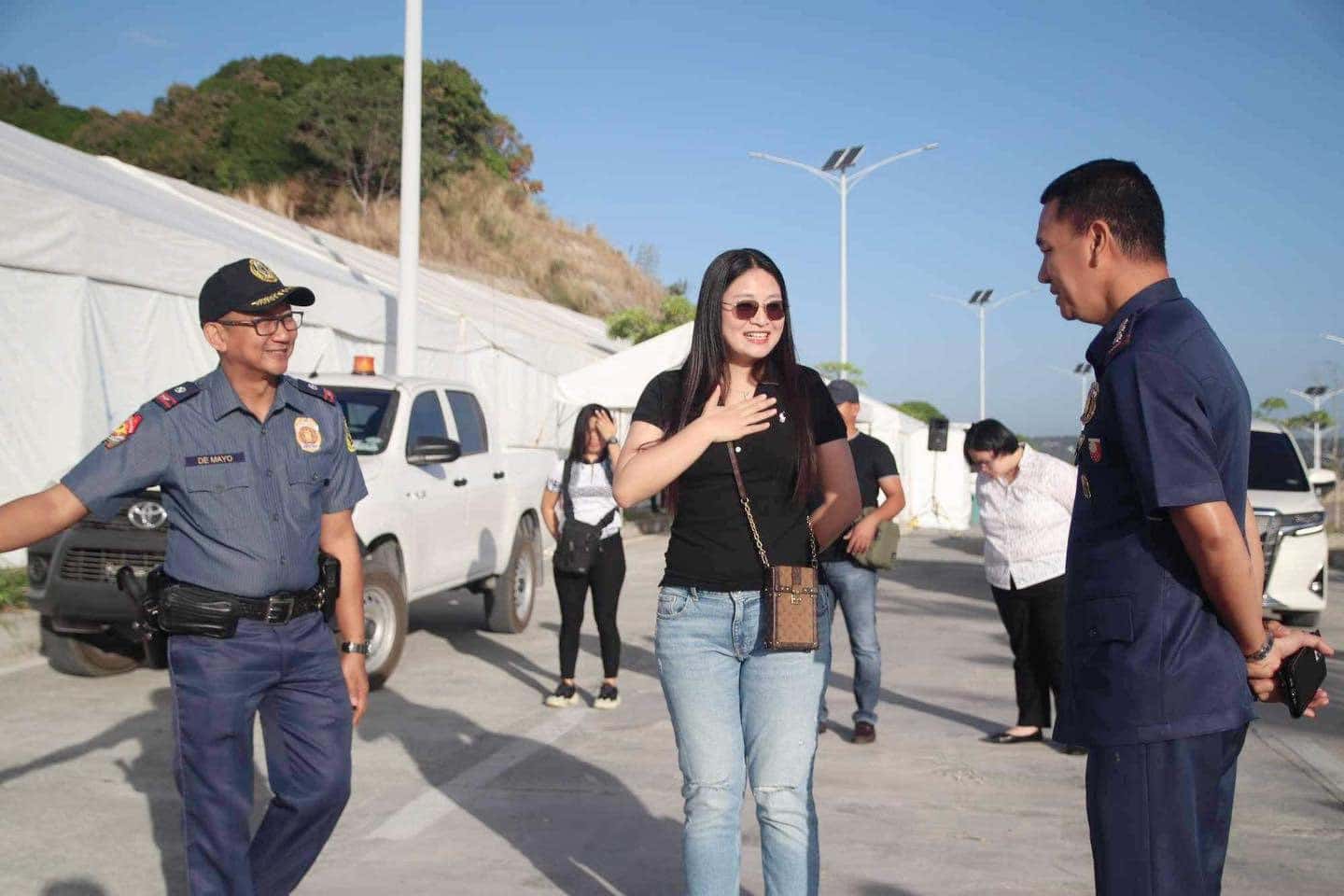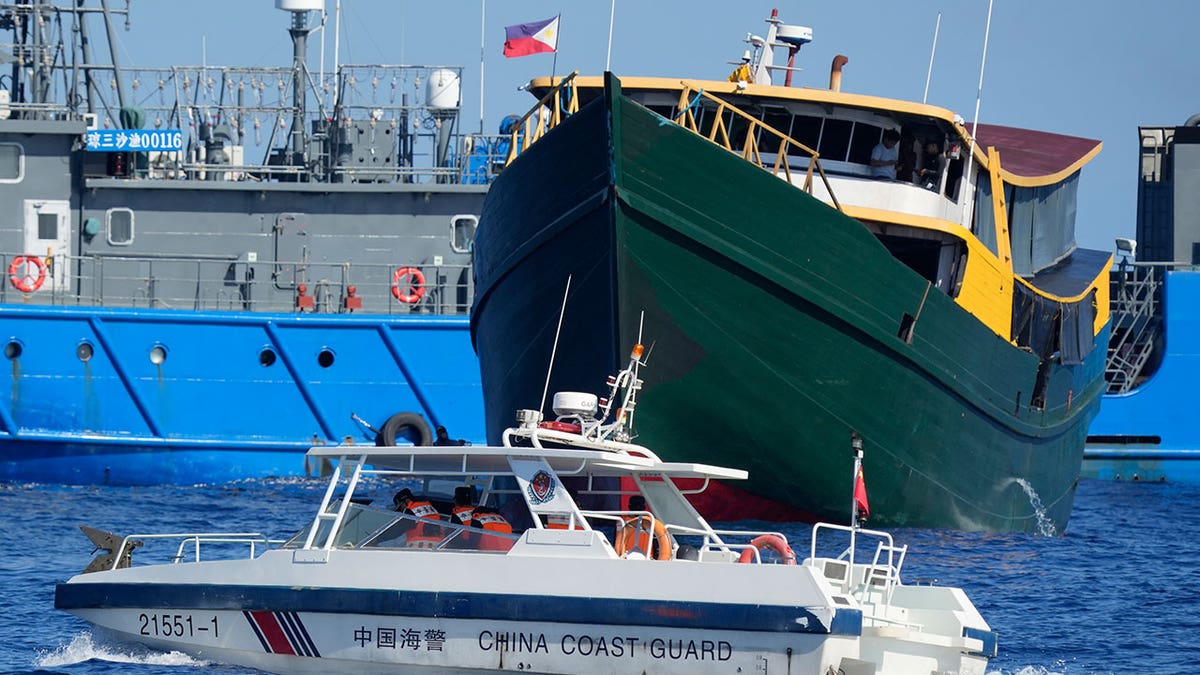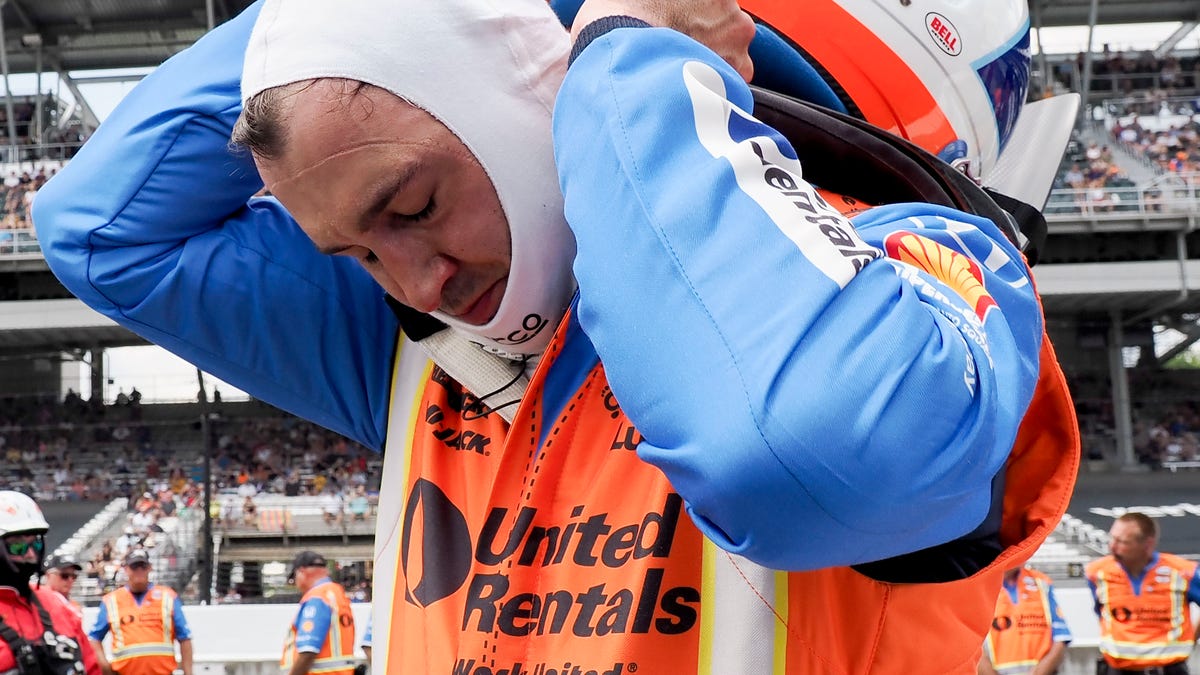World
Brazil hosting Amazon summit: What you need to know

The leaders of eight Amazon rainforest nations are meeting this week in Brazil to tackle pressing challenges facing the critical ecosystem.
Representatives from Bolivia, Brazil, Colombia, Ecuador, Guyana, Peru, Suriname and Venezuela will join the two-day meeting of the Amazon Cooperation Treaty Organization (ACTO), which kicks off on Tuesday in the northern Brazilian city of Belem.
The summit come just months after Brazilian President Luiz Inacio Lula da Silva took office, promising to get Amazon deforestation down to zero by 2030 after years of destruction and largely unchecked development under his predecessor Jair Bolsonaro.
Lula said last week that the meeting will seek to draw up a common policy for the first time to protect the rainforest.
“I have high expectations for this summit,” he said. “For the first time, we are going to have a common policy for the Amazon for preservation, security, borders.”
Here’s all you need to know:
Why is the Amazon so important?
The Amazon – a massive rainforest twice the size of India that sprawls across eight countries and one territory – is a crucial carbon sink, absorbing carbon dioxide emissions, which are driving the climate crisis.
Atmospheric chemist Luciana Gatti, a researcher for Brazil’s National Institute of Space Research, said deforestation leads to more greenhouse gases in the atmosphere and generally means reduced rainfall and higher temperatures.
“By deforesting the Amazon, we are accelerating climate change,” Gatti told The Associated Press.
She co-authored a study published in the journal Nature that found that the heavily deforested eastern Amazon has ceased to function as a carbon absorber and is now a carbon source. Gatti said half of the deforestation in the eastern Amazon needs to be reversed to maintain the rainforest as a buffer against climate change.
What are the main threats to the rainforest?
Deforestation has been the main threat to the Amazon, particularly in Brazil, which is home to about two-thirds of the rainforest.
Bolsonaro, who was in office from the beginning of 2019 to the end of 2022, had pushed for greater economic development in the region and curtailed the powers of the environmental and Indigenous affairs departments. He faced widespread criticism from rights groups that said his policies resulted in a surge in deforestation and violence against Indigenous communities.
The Amazon biome has lost more than 85,000sq km (328,000sq miles), or about 13 percent of its original area, according to the Monitoring of the Andean Amazon Pact. And carbon emissions from the Amazon increased by 117 percent in 2020 compared with the annual average for 2010 to 2018, the latest figures from researchers at Brazil’s national space agency showed.
Cattle ranching and soybean farming have expanded dramatically thanks to new technology, highways, and global demand for grain and beef.
Nowhere is the devastation more sweeping than in the Brazilian state of Para, where Belem is the capital. Forty-one percent of deforestation in Brazil’s Amazon has come in Para, where so much land has been converted to run about 27 million head of cattle that it is the leading emitter of greenhouse gases among Brazilian states, according to the Climate Observatory, a network of environmental nonprofit groups.
Other environmental threats are large hydroelectric dams, especially in Brazil; illegal logging; mining; and oil drilling, which also cause water contamination and disruption of Indigenous ways of life. Underinvestment in infrastructure also means much of the sewage from homes in the rainforest flows directly into waterways.
What will be discussed at the summit?
The leaders at this week’s talks – the first summit of the Amazon Cooperation Treaty Organization since 2009 – are due to discuss strategies to fight deforestation and organised crime.
They will also seek sustainable development for the region, which is home to 50 million people, including hundreds of Indigenous groups seen as crucial to protecting the rainforest.
The summit will conclude with a joint declaration, expected to be “ambitious” and set out “an agenda to guide countries in the coming years”, said Brazilian foreign ministry official Gisela Padovan.
Brazil’s Environment Minister Marina Silva also told the Reuters news agency last week that the summit participants are aiming to set up a scientific body like the United Nations Intergovernmental Panel on Climate Change to share research on the Amazon.
The panel would help produce sustainable development policies for the countries of the region while remaining independent of governments and will monitor the impact of climate change on the Amazon rainforest and ecosystem, Silva said. It would also seek to determine the limits of what scientists call the “point of no return” when the rainforest is damaged beyond repair.
What challenges do the countries face?
A debate over drilling for oil near the mouth of the Amazon River, where Brazil is weighing whether to develop a potentially huge offshore oil find, has sparked fierce infighting in Lula’s government, pitting advocates for regional development against environmentalists.
Asked whether oil would factor into an accord at the summit, Brazilian diplomats told reporters last week that a joint statement was still being negotiated and economic development more broadly was under discussion.
At a pre-summit meeting last month, Colombian President Gustavo Petro pushed his Brazilian counterpart to block all new oil development in the Amazon. “Are we going to let hydrocarbons be explored in the Amazon rainforest? To deliver them as exploration blocks? Is there wealth there, or is there the death of humanity?” Petro asked in a speech alongside Lula.
For his part, Lula pushed at the meeting in Leticia, Colombia, for all countries in the region to pledge an end to deforestation by 2030. Only Bolivia and Venezuela have not yet made such a commitment.
Other differences that could surface at the summit are more subtle disagreements about priorities. Top of the agenda at the pre-summit meeting was cross-border collaboration to address the rising threat of drug traffickers perpetrating environmental crimes in the Amazon.
What have rights groups said?
Ahead of the summit, more than 50 environmental groups called on the region’s governments to adopt a plan “to stop the Amazon from reaching a point of no return”.
The petition, published by the Climate Observatory, called on countries to join Brazil’s pledge for zero illegal deforestation by 2030, strengthen Indigenous rights and adopt “effective measures to fight environmental crimes”.
The environmental group WWF-Brazil also urged summit participants to come up with “a firm and ambitious declaration” for an action plan to end deforestation and illegal gold mining and “conserve 80 percent of the Amazon”.
“The recognition that stopping the Amazon tipping point is critical regionally and globally as it endangers the livelihoods of millions of people and the ecosystem services that sustain the environmental health of the entire South American continent,” the group said.

World
Ukraine investigates civilian injuries, battles rage in Kharkiv region

World
Philippine mayor accused of acting as Chinese asset amid investigation, tensions

A Philippine mayor faces accusations of acting as a Chinese asset amid a growing territorial dispute between the two countries.
“No one knows her. We wonder where she came from. That’s why we are investigating this, together with the Bureau of Immigration, because of the questions about her citizenship,” Philippine President Ferdinand Marcos told reporters this week.
Alice Guo, the 35-year-old mayor of Bamban, has found herself in the middle of a potential scandal over her origins and allegiances. She claimed to have grown up on a pig farm and had raised no concerns prior to a strange discovery made in her town this month, the BBC reported.
Law enforcement discovered that an online casino by the name of Philippine Offshore Gambling Operator (Pogo) in Bamban actually served as a front for a “scam center,” which had close to 700 workers — including over 200 Chinese nationals — who were posing as “online lovers.”
CHINA’S MILITARY MONITORS ROUTE TAKEN BY FILIPINO ACTIVISTS SAILING TOWARD DISPUTED SHOAL
Bamban Mayor Alice Guo speaking with local law enforcement in a photo posted on her official Facebook page earlier this week. (Facebook)
The raid on the site in March rescued all of those workers, who claimed they were forced to work for the owners. The center tried to con victims with a “pig butchering” scam, in which a scammer adopted a fake identity to gain trust and then offered a romantic relationship to manipulate and steal from the victim.
Guo found herself entangled in the incident when it came to light that she owned half the land where Pogo was located.
LAWMAKERS BRAWL AS TAIWAN’S PARLIAMENT DESCENDS INTO CHAOS
The nation’s Senate brought her into a hearing to testify, and she claimed she had sold the land before she ran for mayor two years earlier, along with assets that included a helicopter and a Ford Expedition, both registered under her name but allegedly sold off before her campaign, the South China Morning Press reported.
Other irregularities raised concerns about her status. She only registered with the Commission on Elections to vote in Bamban one year before she ran and won as mayor.

Alice Guo (far right) attends an event for Philippine President Ferdinand Marcos. (Facebook)
She also admitted she only registered her birth certificate with local authorities at the age of 17 and gave few details about her background other than she was born in a house and home-schooled in a family compound where they raised pigs.
Senators accused Guo of providing “opaque” answers to their questions about her background, leading one senator to ask if Guo was a Chinese asset. She fired back that she was “not a coddler, not a protector of Pogos.”
AFTER DOZENS DIE IN FLOODS, INDONESIA SEEDS CLOUDS TO BLOCK RAINFALL
China and the Philippines have found themselves in renewed territorial disputes as Beijing tries to enforce control over waters around the Philippines, leading to clashes between Chinese Coast Guards and Filipino fishermen.

A Chinese coast guard boat moves near the Philippine resupply vessel Unaizah May 4 (in green) after it was hit by a water cannon blast, causing injuries to multiple crew members as they tried to enter the Second Thomas Shoal, locally known as Ayungin Shoal, in the disputed South China Sea March 5, 2024. (AP Photo/Aaron Favila)
Last year saw a series of near clashes between the two coast guards near the Second Thomas Shoal. The Philippine authorities protested China’s use of a water cannon and military-grade lasers.
China established a claim to the Scarborough Shoal in 2012, after which the Philippines formally launched a protest that went before a United Nations-backed tribunal. A 2016 ruling went against China, rejecting Beijing’s claims on “historical grounds,” but Beijing rejected the arbitration and its outcome.
The Associated Press contributed to this report.
World
Sanchez: “I will recognise the Palestinian state next Wednesday”.

Spain’s prime minister said during a rally in Catalonia that he is going to propose the parliament’s official recognition of Palestine as a state on Wednesday, 22 May.
Sanchez defended the decision “out of moral conviction”, considering it “a just cause” and the “only way” to achieve peace and security in the Israeli-Palestinian conflict.
Ireland, Malta and Slovenia are expected to follow suit, and have already agreed to take the first steps in that direction.
In a phone call on Saturday, Taoiseach Simon Harris and Norwegian Prime Minister, Jonas Gahr Store agreed to remain in close consultation in the days ahead. Norway’s parliament adopted a government proposal in November for the country to be prepared to recognise an independent Palestinian state.
Harris and Store said that the deteriorating humanitarian conditions in Gaza underscored the need for an immediate ceasefire and for unhindered access for aid.
Earlier this week, Slovenian Prime Minister Robert Golob said his country would recognise Palestine’s statehood by mid-June.
Sanchez meanwhile criticised the Popular Party for refusing to recognise the Palestinian state and responded to former President Jose Maria Aznar by stating that “Spain will recognise it”.
The prime minister also acknowledged his party’s positive result in the Catalan elections of 12 May and said that Salvador Illa would make a good President of the Generalitat.
Spain would be the 10th European country to recognise the Palestinian State
There are already nine countries in the EU that have recognised Palestine as a state and Spain would be the tenth. On the list are: Bulgaria, Cyprus, Czech Republic, Hungary, Malta, Poland, Romania, Slovakia, Sweden and Slovakia.
Sanchez confirmed on Friday that Spain’s recognition will not be made at Tuesday’s Council of Ministers, as had been suggested.
The prime minister said that his position on the Israel-Hamas conflict is much like his country’s support for Ukraine following Russia’s invasion more than two years ago.
He stressed that Spain demanded ”respect for international law from Russia, and from Israel, for the violence to end, the recognition of two states, and for humanitarian aid to reach Gaza”.
Sanchez added his voice to a chorus of other European leaders and government officials who have said that they could support a two-state solution in the Middle East, as international frustration grows with Israel’s military actions in the Palestinian territories.
French President Emmanuel Macron said last month that it’s not ”taboo” for France to recognise a Palestinian state. British Foreign Minister David Cameron said that the United Kingdom could officially recognise a Palestinian state after a cease-fire in the Israel-Hamas war.
Five months after Hamas militants attacked Israel on 7 October, killing about 1,200 people and taking 250 others hostage, the Israeli military has responded with air and ground assaults that have killed more than 35,386 Palestinians, according to the Gaza Health Ministry.
Why does Spain support recognition of Palestine as a sovereign state?
Spain has been historically close to the Arab world and, as such, the nation is actively trying to push a line more favourable to Palestinian aspirations within the European Union.
In a speech made shortly after his re-election last year, Sanchez promised that his new government’s “first commitment” on foreign policy would be to “work in Europe and Spain to recognise the Palestinian state”.
At the same time, he said he was “on the side of Israel” in the face of “the terrorist attack” of 7 October, but also called on the Jewish state to put an end to the “indiscriminate killing of Palestinians”.
The stance comes at a time when many Western countries are facing criticism in the Arab world for being seemingly too favourable towards Israel.
In 2014, under a conservative government, the Spanish Parliament adopted a resolution calling for the recognition of the Palestinian state, supported by all political parties.
The vote, though, was non-binding and not followed by any action.
In Europe, several countries have taken this step in a more effective way.
They include Sweden, Hungary, Malta and Romania – but none of the main EU member states have done so, meaning that Spain could become a pioneer.
A brief history of Spanish-Arab relations
Geographically close to the Maghreb region of North Africa, Spain turned to Arab countries during the Franco dictatorship which ran from 1939 to 1975 in order to circumvent its isolation in the West.
It was not until 1986, however, that the nation established official relations with Israel.
The relatively late date was a consequence of tensions born from Israel’s opposition to Spain’s entry into the UN at the end of the Second World War, due to its proximity to Nazi Germany.
In 1993, they played a role in the Oslo Accords, through which Israel and the Palestine Liberation Organization mutually recognised each other as part of the peace process.
Overall, though, Spain remains perceived by many as a pro-Arab country.
At the end of October, a mini-diplomatic crisis even broke out with the Israeli embassy after controversial statements by a far-left Spanish minister who spoke of a “planned genocide” in Gaza.
With much of Europe firmly pro-Israel, Isaias Barrenada, a professor at the Complutense University of Madrid, said it will be an uphill battle for Sanchez.
”It is difficult to imagine that Spain has the capacity to reorient the European position,” Barrenada told AFP, but “it can contribute to showing that there are sensitivities within the EU.”
-

 Politics1 week ago
Politics1 week agoOhio AG defends letter warning 'woke' masked anti-Israel protesters they face prison time: 'We have a society'
-

 Finance1 week ago
Finance1 week agoSpring Finance Forum 2024: CRE Financiers Eye Signs of Recovery
-

 Politics1 week ago
Politics1 week agoBiden’s decision to pull Israel weapons shipment kept quiet until after Holocaust remembrance address: report
-

 World7 days ago
World7 days agoIndia Lok Sabha election 2024 Phase 4: Who votes and what’s at stake?
-

 News1 week ago
News1 week agoThe Major Supreme Court Cases of 2024
-

 News1 week ago
News1 week agoTornadoes tear through the southeastern U.S. as storms leave 3 dead
-

 World1 week ago
World1 week agoA look at Chinese investment within Hungary
-

 Politics1 week ago
Politics1 week agoTales from the trail: The blue states Trump eyes to turn red in November



















